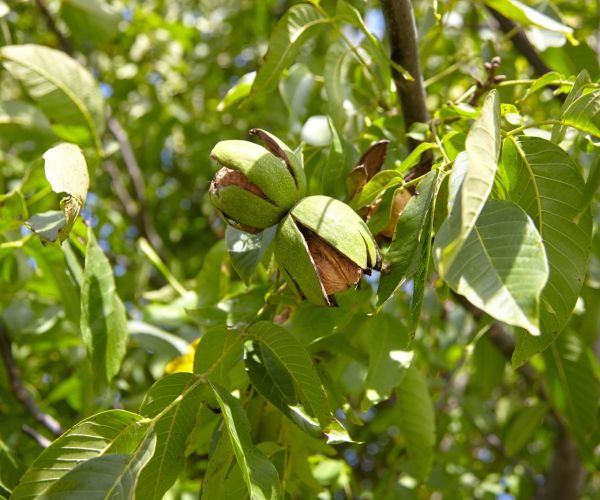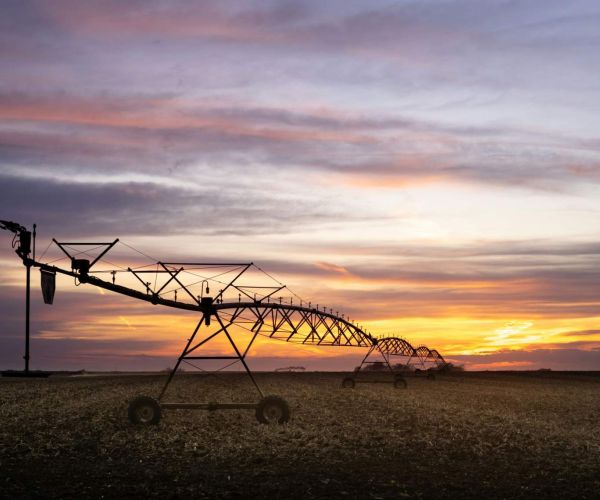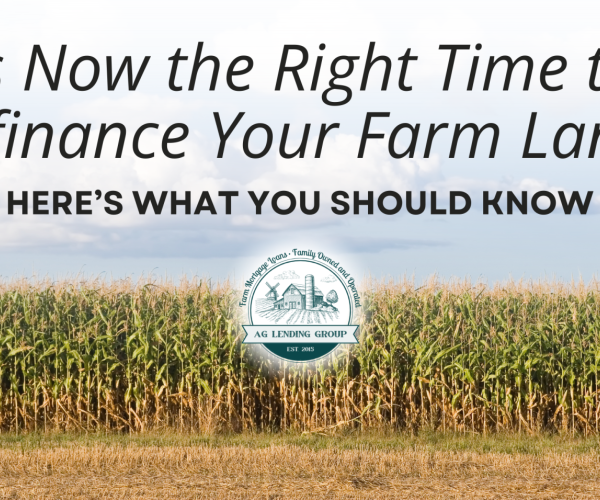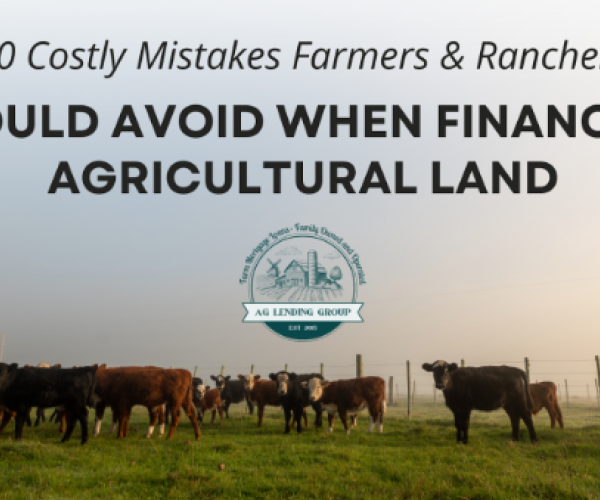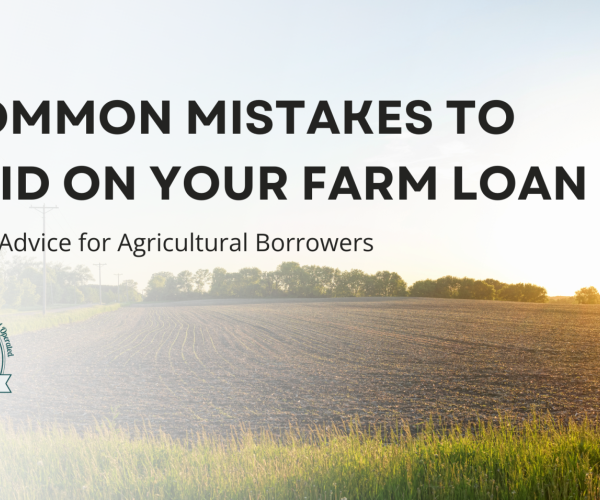Farm & Ranch Lending, Redefined: Why Relationships Matter at Ag Lending Group
| Blogs
At Ag Lending Group, we believe that agricultural lending is about more than numbers—it’s about people, families, and the future of American farming. As a family-owned lender, our approach is simple: treat every client like family, offer transparent solutions, and deliver honest answers. That’s why our motto is: No Suits. No Ties. No Lies.
What Sets Us Apart?
In a world of automated approvals and impersonal service, we choose to do things differently. We know our clients by name, not by loan numbers. Our team listens, learns about your operation, and crafts loan solutions as unique as your farm or ranch. We might not always be the fastest, but we’re always in your corner.
Our Loan Solutions
We offer a wide range of loans for farmers, ranchers, growers, and rural property owners:
Farm & Ranch Mortgages: Secure, long-term financing for your land and operation.
Refinance Loans: Improve your terms or access equity for new opportunities.
Land Development Loans: Fund impro…
A Strategic Land Acquisition: How Ag Lending Group Facilitated a Fast-Tracked Ranch Purchase in Texas
| Blogs
A Strategic Land Acquisition: How Ag Lending Group Facilitated a Fast-Tracked Ranch Purchase in Texas
In the heart of Washington County, Texas, a family rancher had been operating a mid-size cow-calf program alongside a long-time farming couple. When a neighboring property became available due to a non-arm’s length opportunity, they recognized it as a golden chance to expand their agricultural investment. However, to seize this opportunity, they needed to act swiftly.
The Challenge: Navigating Complexities in Texas Ranch Financing
The seller, a relative, offered them the land before listing it publicly. The catch? The deal had to close quickly to prevent it from hitting the open market. This urgency was compounded by two significant challenges:
Non-Arm’s Length Deal: Traditional lenders were hesitant, only willing to lend against the lower of the purchase price or appraised value, necessitating a hefty down payment.
Complex Co-Purchase Structure: Co-purchasing with another coup…
Turning Dairy Dreams into Legacy: How Ag Lending Group Supports Dairy Farmers in a Challenging Economy
| Blogs
Turning Dairy Dreams into Legacy: How Ag Lending Group Supports Dairy Farmers in a Challenging Economy
June marks National Dairy Month, a time to celebrate the hardworking dairymen and women who provide nourishment for families across the country. But for many dairy farmers, this month also serves as a reminder of the challenges they face in an evolving economy marked by fluctuating milk prices, rising input costs, and tightening financial conditions.
At Ag Lending Group, we understand the complexities of the dairy industry—and we’re here to help producers make wise financial decisions to keep their farms thriving, sustainable, and safe from financial strain.
A Wisconsin Dairy Farmer’s Journey to Ownership
Recently, we had the privilege of working with a young dairyman in Wisconsin who was ready to turn his long-standing rental into a family legacy. For years, he had been leasing the land and growing his dairy operation, but the opportunity arose to purchase the property and s…
Innovative Non-Recourse Financing Empowers California Almond Grower
| Blogs
In the agricultural industry, securing a line of credit can often be a complex venture. Many farmers find themselves tied into restrictive agreements that involve personal guarantees or crop liens. However, a diversified almond grower in Kern County, California, discovered a novel solution through the Non-Recourse Line of Credit offered by Ag Lending Group. This financial product provided the flexibility and protection he needed without the typical burdens.
The Challenge: Overcoming Traditional Lending Barriers
The farmer, managing over 42 acres of almond orchards, was in search of a financing option that would deliver liquidity without exposing him to traditional crop risks. Despite his strong land equity position, he faced numerous rejections over the year-long search. Conventional lenders insisted on crop liens, personal guarantees, or a proven operating history, none of which aligned with his goal of preserving flexibility amidst potential market volatility.
Most banks demand…
Ag Lending Group: Empowering Farmers with Fast and Tailored Financing Solutions
| Blogs
Ag Lending Group: Empowering Farmers with Fast and Tailored Financing Solutions
In the heart of Cheyenne County, Nebraska, a third-generation row crop farmer faced a critical challenge. With the planting season approaching and input prices on the rise, the need for timely refinancing was more urgent than ever. However, delays and a lack of understanding from their regional bank left them in limbo. Enter Ag Lending Group, a trusted partner in agriculture financing, ready to deliver farm lending solutions with speed and expertise.
The Challenge: A Race Against Time
The farmer needed to refinance existing debt and secure working capital for the upcoming season. Unfortunately, their previous lender’s shifting terms, prolonged processes, and a lack of ag-specific expertise stalled their progress. Every day spent waiting was a day closer to potential financial strain. Time was running out, and the pressure was mounting.
Ag Lending Group Steps In: A Swift and Strategic Solution
Ag Len…
Is Now the Right Time to Refinance Your Farmland Loan? Here’s What You Should Know
| Blogs
Is Now the Right Time to Refinance Your Farmland Loan? Here’s What You Should Know
Spring is a season of fresh starts — not just for planting, but for your finances too. If you’ve been wondering whether now is the right time to refinance your farm loan or land loan, you’re not alone. With interest rates starting to ease after a few tough years, refinancing could be the strategic move your operation needs.
Why Refinance Your Farm or Land Loan Now?
Over the past few years, farmers and ranchers have faced rising input costs, tighter margins, and higher loan payments. But today, there’s opportunity: interest rates are stabilizing, and many agricultural borrowers can now refinance to better terms.
Whether you’re looking to lower your monthly payment, lock in a fixed rate, or cash out equity to reinvest into your operation, a farm refinance could set you up for success heading into the next season.
Signs It Might Be Time to Refinance
How do you know if refinancing your farm loan o…
10 Costly Mistakes Farmers and Ranchers Should Avoid When Financing Agricultural Land
| Blogs
Financing agricultural land is one of the most significant financial decisions a farmer or rancher will make. Whether you are purchasing new land, expanding your operation, or refinancing existing loans, the structure of your financing can have long-term consequences. Unfortunately, many producers make critical mistakes that put their entire operation at risk—often without realizing it.
At Ag Lending Group, we work with farmers and ranchers across the country to ensure their financing is strategic, sustainable, and structured for long-term success. Below are ten common financing mistakes we see and how to avoid them.
1. Cross-Collateralizing Land, Equipment, and Operating Loans
One of the biggest mistakes farmers and ranchers make is allowing their lender to cross-collateralize their mortgage, equipment, and operating loans. Many banks and farm credit institutions bundle everything together, meaning that if one loan falls into default, the lender has the right to seize all the as…
5 Common Mistakes to Avoid When Applying for an Agricultural Loan
| Blogs
Securing an agricultural loan can be a game-changer for farmers and ranchers looking to grow their operations, purchase new land, or refinance existing debt. However, the process can be complex, and making certain mistakes during your application can delay approval or even result in denial. To help you navigate the process successfully, here are five common mistakes to avoid when applying for an agricultural loan.
1. Failing to Prepare Accurate Financial Documents
Lenders need a clear picture of your financial health to assess your eligibility for a loan. Missing or inaccurate financial documents, such as tax returns, profit and loss statements, or balance sheets, can create significant roadblocks. Before applying, take the time to organize your financial records, ensuring they are accurate, complete, and up to date.
2. Not Having a Clear Purpose for the Loan
Lenders want to know exactly how you plan to use the funds. Whether it’s acquiring land, expanding your operation or co…
How to Set Your Farm or Ranch Up for Financial Success in the New Year
| Blogs
As a new year begins, it’s a perfect time to reflect on the past year’s accomplishments and challenges while setting goals for the year ahead. For farmers and ranchers, financial success often hinges on careful planning, strategic investments, and a clear vision for growth. At Ag Lending Group, we understand the unique financial needs of agriculture and are here to support you every step of the way. Here are some tips to help set your farm or ranch up for financial success in the new year.
1. Review and Adjust Your Budget
Start by taking a close look at your current financials. Review your income, expenses, and cash flow from the past year. Are there areas where you can cut costs or optimize spending? Create a detailed budget for the coming year that accounts for seasonal expenses, equipment maintenance, and unexpected challenges.
How We Can Help:
Ag Lending Group can provide financial guidance and flexible loan options to help cover operating expenses or unexpected costs, ens…
Why Now Might Be the Right Time to Refinance Your Farm Loan
| Blogs
Why Now Might Be the Right Time to Refinance Your Farm Loan
In today’s challenging farm economy, every dollar counts. With fluctuating crop prices, rising input costs, and unpredictable weather, many farmers and ranchers are facing tighter cash flows than ever before. Refinancing your farm loan could be a game-changer for your operation, helping you unlock cash flow, take advantage of lower interest rates, and secure the financial flexibility you need to weather these ups and downs. Here, we’ll cover the benefits of refinancing and who can gain the most from it.
1. Why Refinance? The Benefits for Farmers and Ranchers
Refinancing a farm loan means replacing your current loan with a new one, ideally at a lower interest rate or with terms better suited to your needs. This adjustment offers multiple benefits:
Lower Monthly Payments: By securing a lower interest rate or adjusting the loan term, you can often reduce your monthly payments, freeing up cash to reinvest in your opera…
Latest Articles
- Is Now the Right Time to Refinance Your Farm?
- How Credit Scores Affect Your Land Loan Eligibility
- Strategic Financial Planning: Positioning Your Operation for a Stronger New Year
- Why a Real Estate-Backed Line of Credit is a Smart End-of-Year Move
- November WASDE: What Farmers Should Know, and How to Navigate What’s Next

